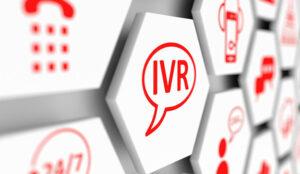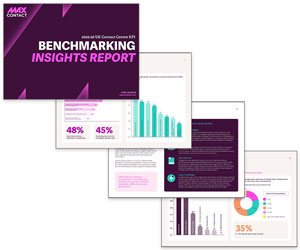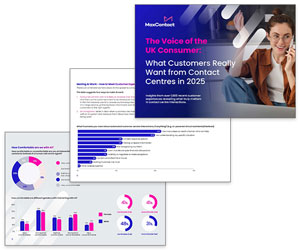A few years ago, IVRs (interactive voice response) were not much loved by consumers, and even today, poorly implemented systems can leave callers fuming on the other end of the phone.
But as customers have got more used to talking to technology (think Alexa, Google Assistant and more), and IVR systems have got more sophisticated, it has become ever more essential.
Today, almost three-quarters of customers think they should have the ability to solve their own product or service issues, and improved self-service is among the top three priorities for businesses that want to improve CX.
Nowhere is self-service – of which IVR is a key technology – more important than for credit and collections, where it’s worth its weight in gold (almost literally). Is the price of not having a payment IVR worth paying?
Unproductive Agents
If you don’t have a payment IVR solution, the professional agents you employ, equip and train spend significant amounts of time doing little more than entering numbers into a digital data management system.
They check identification details and type in credit card numbers, or transfer to payment gateways again and again and again.
It’s a waste of talent. IVRs can do all this via touch tones or voice activation, without customers ever having to speak to an agent. Won’t they miss the human touch? Not at all.
When they’re paying bills or making payments, consumers simply want the quickest and most efficient experience, and what they want most of all is to avoid waiting in call queues. IVR can help give them what they want.
It also frees up your agents for more productive tasks, like the kind of deeper dives into customer issues that increase customer satisfaction ratings, as well as the escalation of unpaid bills and late payments.
Unnecessary Costs
According to one study, the average cost of a call to a contact centre agent is £4.27, made up of staffing costs and overheads. Some of that expense is unavoidable, but many contact centres still have agents taking calls they really don’t need to take.
A payment IVR system can handle many of those calls at considerably reduced cost, and taking payments is exactly the kind of simple, repetitive task that automation was designed for. It’s often said that IVRs can reduce the cost of simple calls by around 35%.
In addition, IVR systems don’t take breaks, don’t need holidays and don’t need to be equipped with a desk and chair.
We’ve been talking about inbound calls, but you can also drive huge efficiencies by combining outbound operations by automating ‘reminder to pay’ calls or SMS to customers approaching payment deadlines.
Limited Opening Hours
When you rely on live agents to take payments and offer account information, you’re limiting your service to office hours. Even with a shift system in place, many contact centres can’t justify the expense of keeping the lights and air conditioning on after nightfall.
With payment IVR, you can run a 24-hour operation, 365 days a year. That increases satisfaction among customers who work unsocial hours or have busy lives and want to be able to complete financial housekeeping at a time of their choosing. It also reduces the chances of missed payments and payment defaults.
Customers understand that they can’t do everything at midnight. But they’re increasingly aware that paying bills and obtaining basic account information can and should be a round-the-clock service.
Insecure Payments
If you take payments over the phone, you have to be PCI compliant at the very least. A PCI-compliant payment IVR can help you achieve compliance and handle payments and account enquiries in the most secure way.
That’s partly because an automated system is simply more secure than an agent noting down card details manually.
With payment IVRs, sensitive information is processed securely within the system. With manual payments, a scribbled note containing sensitive information could end up anywhere. And though it’s unlikely that an unscrupulous agent will take customer card details, it’s not unheard of.
Payment IVRs can integrate with accounting software and debt management systems to automatically update account information too – win, win.
For efficient credit and collections, it’s essential to give customers easy ways to check accounts and make payments, while also reminding them when payments are due. At the same time, no business wants to spend unnecessary time and expense on chasing and taking payments.
A modern, user-friendly and easily tailored IVR solution is becoming a standard tool in this arena, as businesses seek greater efficiency at lower cost, find out more about PCI-compliant payment IVR solutions at MaxContact.
This blog post has been re-published by kind permission of MaxContact – View the Original Article
For more information about MaxContact - visit the MaxContact Website
Call Centre Helper is not responsible for the content of these guest blog posts. The opinions expressed in this article are those of the author, and do not necessarily reflect those of Call Centre Helper.
Author: MaxContact
Published On: 19th Aug 2021 - Last modified: 24th Aug 2021
Read more about - Guest Blogs, MaxContact




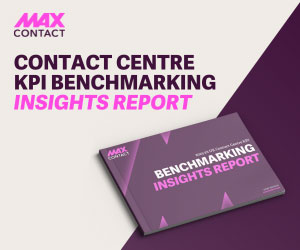

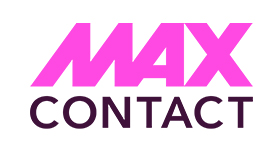 MaxContact is the AI-powered customer engagement software that helps you turn every customer conversation into a high-impact, revenue-driving moment. We empower your teams to connect smarter, perform better, and scale faster – without losing the human touch.
MaxContact is the AI-powered customer engagement software that helps you turn every customer conversation into a high-impact, revenue-driving moment. We empower your teams to connect smarter, perform better, and scale faster – without losing the human touch. 



